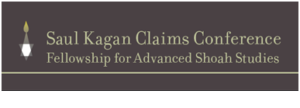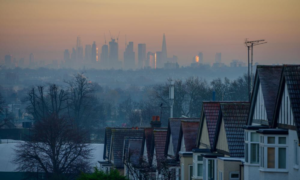City Council’s creation of a task force to study financial compensation for the descendants of enslaved Black Americans provides an opportunity for us all to reflect, build relationships, and act.
It was a small step forward in the struggle for social justice, and one that was burdened by some glaring contradictions.
In June, I was surprised at how moved I was to witness the consideration of City Council Resolution No. 230532, a measure introduced by Councilmembers Jamie Gauthier and Kendra Brooks calling for the creation of a reparations task force in Philadelphia. I sat behind Breanna Moore, cochair of the local chapter of N’COBRA, a national advocacy group committed to winning financial compensation for the descendants of enslaved African Americans. Moore was instrumental in the introduction of the resolution.
Also in attendance were spiritual leaders from across the city who have been part of the Mayor’s Commission on Faith-Based and Interfaith Affairs, which I cochair and which has supported faith communities around Philadelphia as they work to take meaningful reparative action.
The public testimony was inspiring. There were the words of Makayla Coleman — a Black high school student who argued that reparations were one way to begin disrupting generations of systemic inequities. And there was also Shoshana Bricklin — a member of Mishkan Shalom, a progressive Jewish congregation in Manayunk, who shared with the audience the words of Rabbi Abraham Joshua Heschel, an ally of the Rev. Dr. Martin Luther King Jr., who said, “ … that in a free society, some are guilty, but all are responsible.”
The resolution passed unanimously. The crowd applauded. And as I sat there in Council’s chamber in City Hall, I couldn’t help but think of one of those contradictions — we were sitting in a building topped by a nearly 40-foot tall statue of William Penn, Philadelphia’s founder and one of its earliest enslavers.
Penn’s hovering presence is a reminder of his legacy — that the afterlives of the economic system of slavery still powerfully shape our everyday lives.
As a white Quaker, I want to be a part of the work to tangibly manifest a city of brotherly love, sisterly affection, and kin-kindness, that only reparations and rebalancing the deep inequities and harms of the past can create. To a significant degree, that work is already underway.
For the last two years as cochair of the Mayor’s Commission I have been coleading “Rise up for Reparations,” a campaign to engage 100 majority-white congregations in deep reparations around Philadelphia.
The campaign was inspired in part by the work of Green Street Quaker Meeting(of which I am a member), which in 2021 budgeted $500,000 toward reparations for Black Germantown neighbors. We started that work with a free legal clinic, leveraging a $25,000 budget to help stabilize $11 million of Black housing wealth.
In January, the Mayor’s Commission hosted a four-day course at Rodeph Shalomcalled “Building a Culture of Reparations,” co-led by the Rev. Naomi Washington Leapheart, The Truth Telling Project, and myself. That course engaged 87 faith leaders from 15 congregations in preparing teams from each faith community to work for reparations within their congregations. The vision for the campaign is massive wealth redistribution, healing and repair in the city through the faith community. Participants in the course meet regularly and we continually hear news of the progress of these individuals and their communities.
Aziz Nathoo, who also serves on the Mayor’s Commission, believes that the creation of the reparations task force, the enthusiasm within Philly’s faith communities, and other efforts toward reparations provide a great opportunity to reflect, build relationships, and act.
Nathoo shared that, “as a Muslim and a member of the human family, Islam guides me to translate my belief into action, and I encourage other people of faith from my and other faith traditions to join us in making reparative justice palpable in Philadelphia.”
David Ragland, co-director of The Truth Telling Project, brings a national perspective on reparations, and he is always keen to remind me that what we are doing here in Philadelphia is special: Our commitment and progress is important to people beyond the borders of our city.
As someone deeply engaged in the local faith work toward reparations, I hope that our work in the spiritual community can uplift and amplify the efforts of the reparations task force called for by Resolution No. 230532.
To people of faith in the Philly area, I invite you to join us. To all Philadelphians of every creed and none, I invite you to support the reparations task force, and to let your City Council member know that you would like them to do so with action.
Lucy Duncan is cochair of the Mayor’s Commission for Faith-Based and Interfaith Affairs, a member of Green Street Friends Meeting’s Reparations Committee, and a Truth & Reparations co-fellow for The Truth Telling Project.




